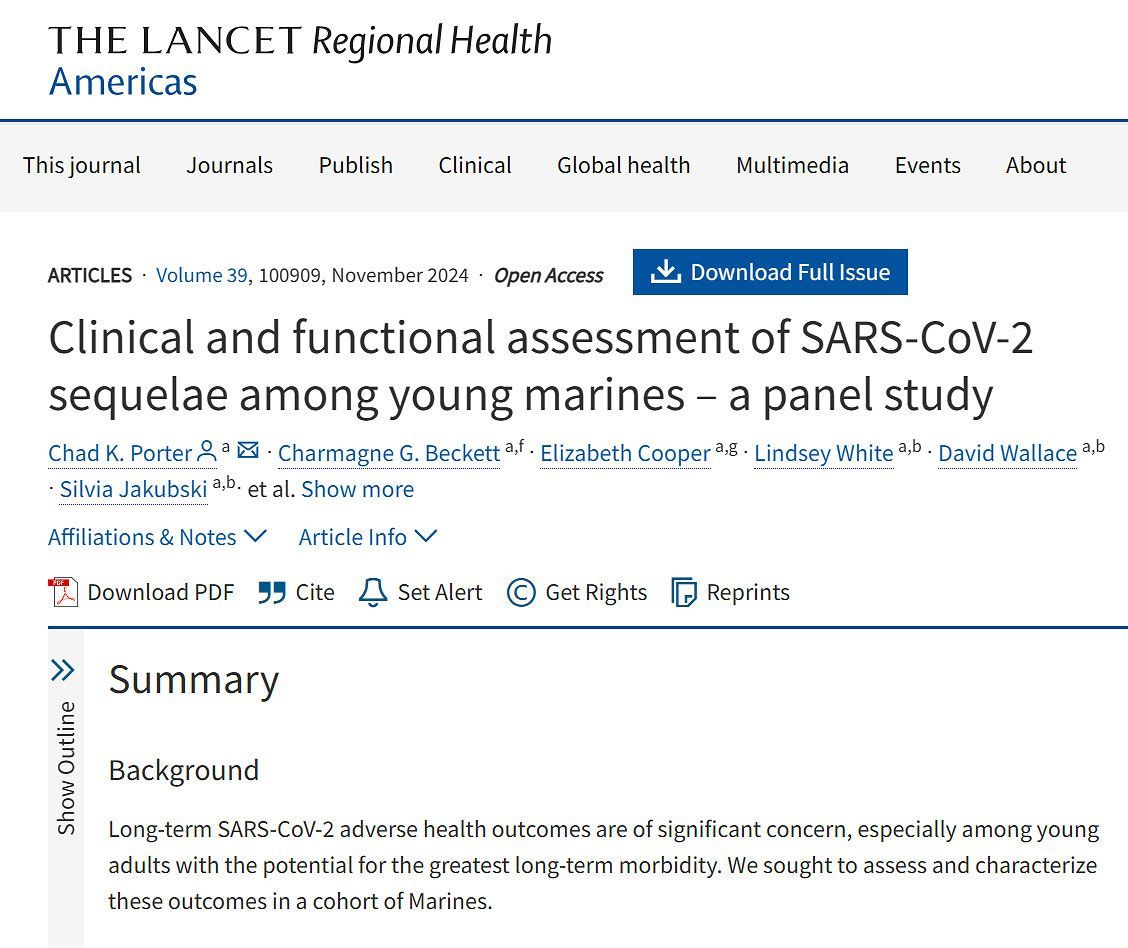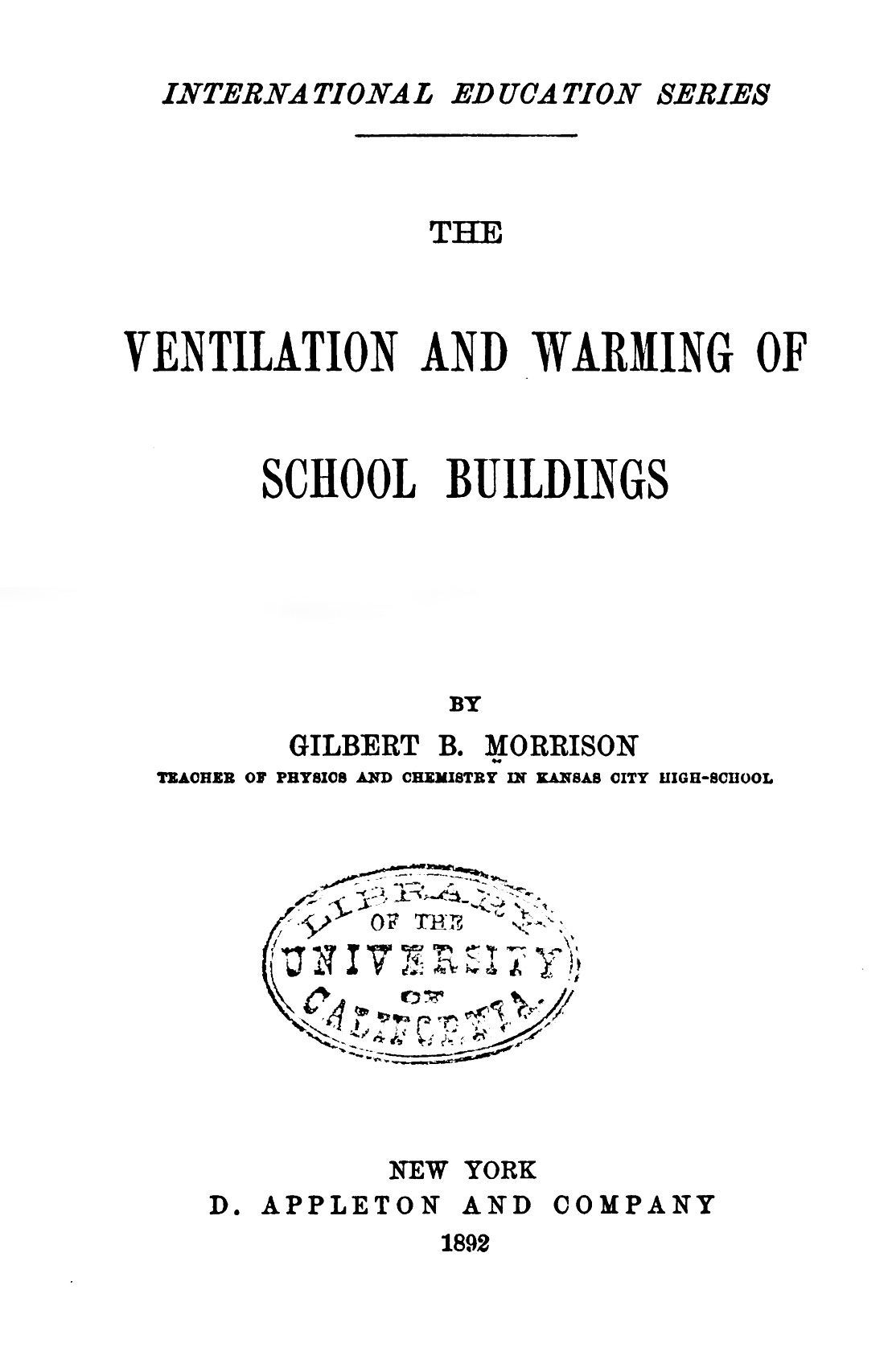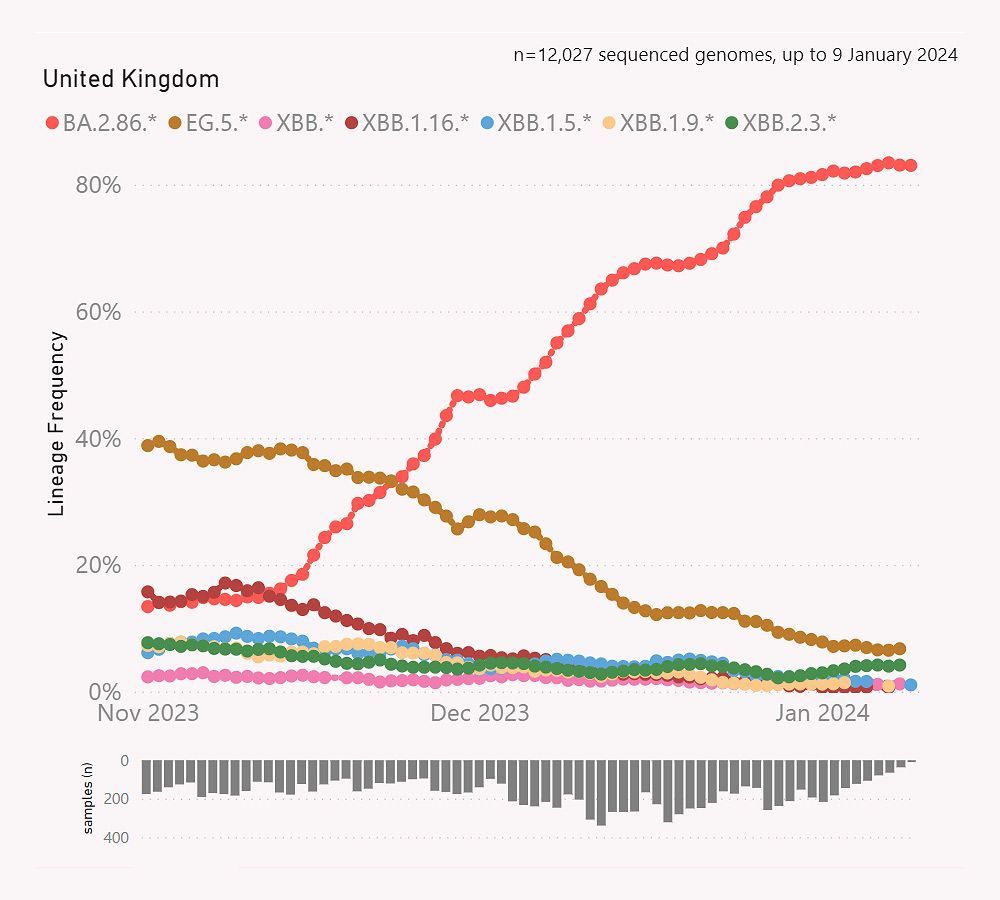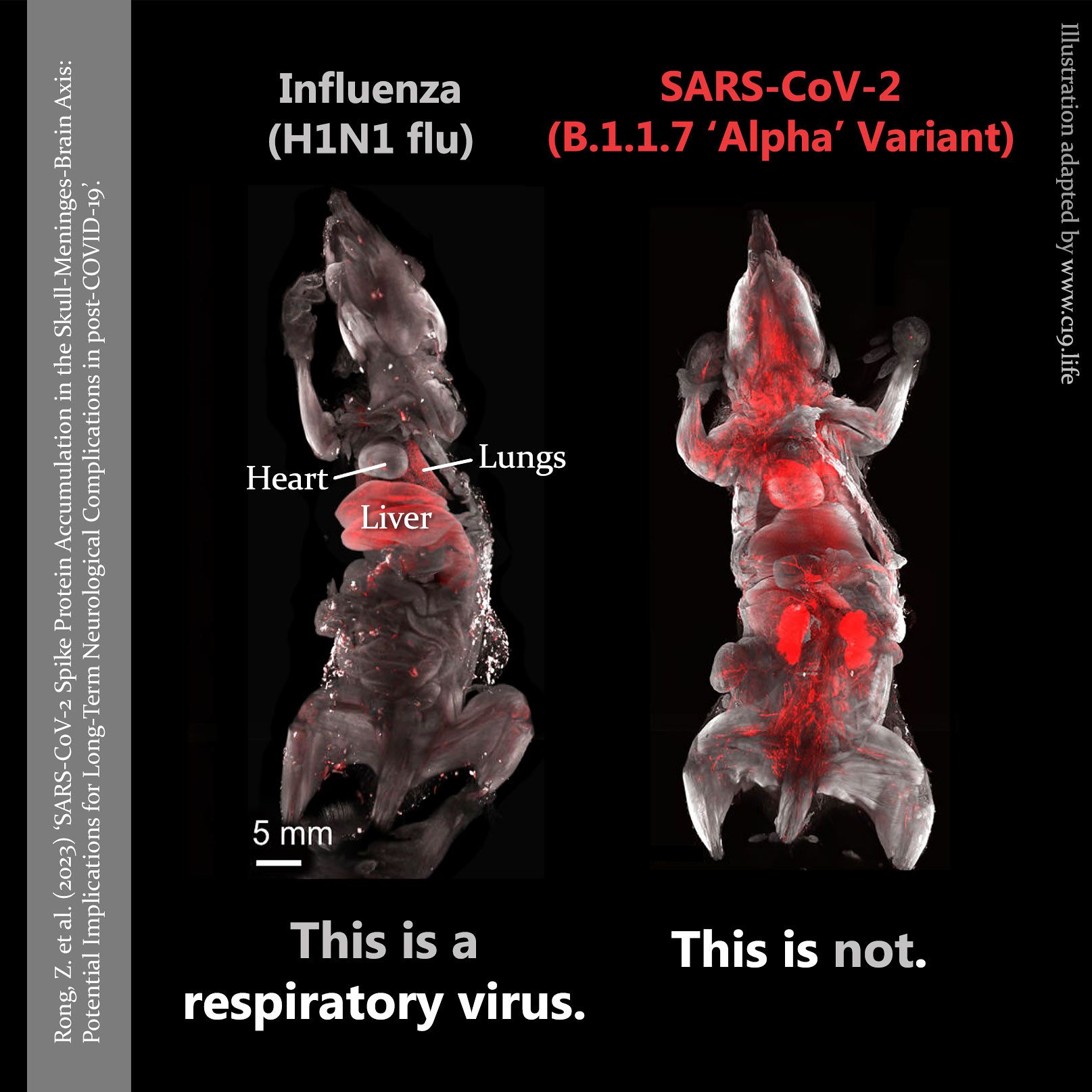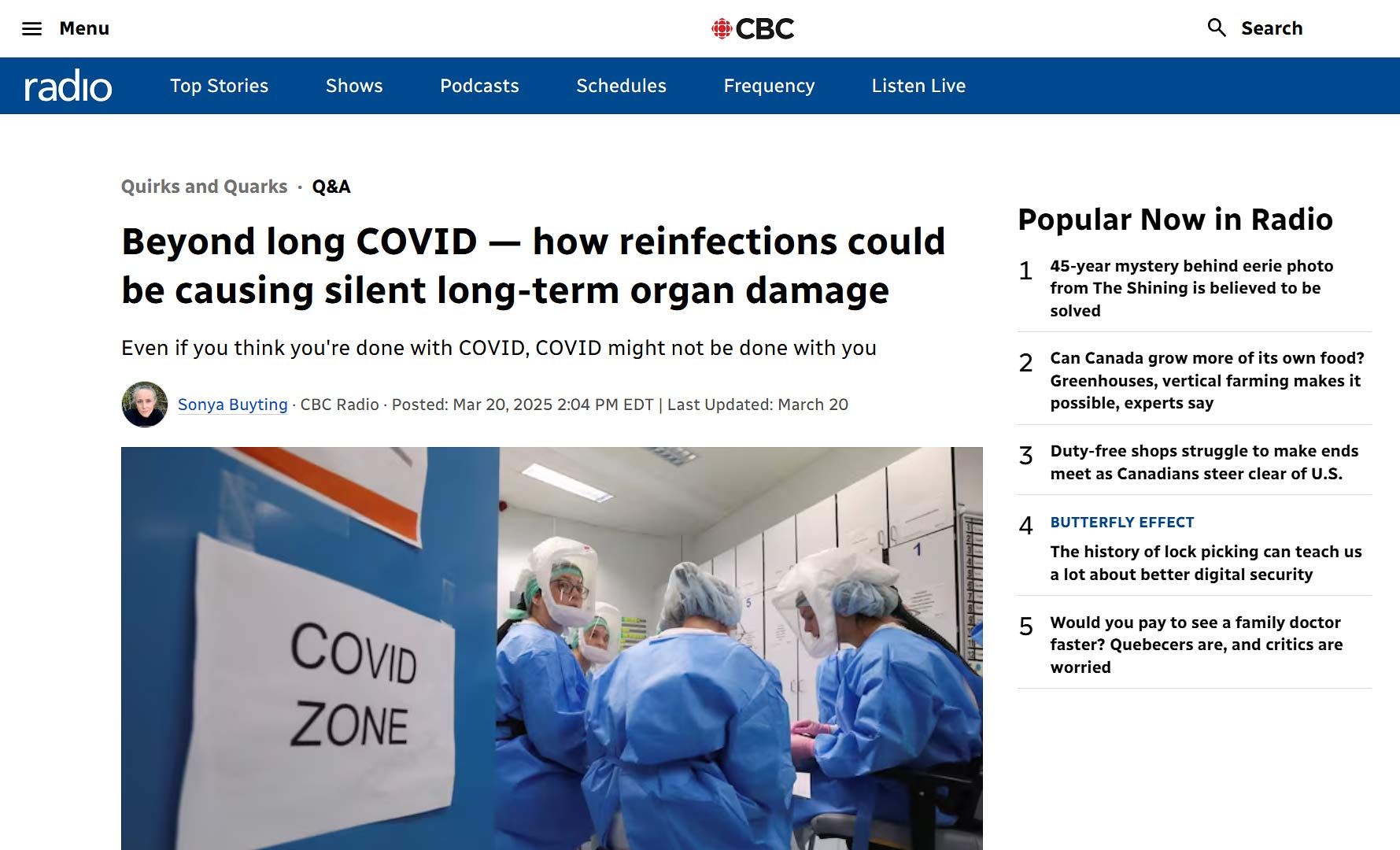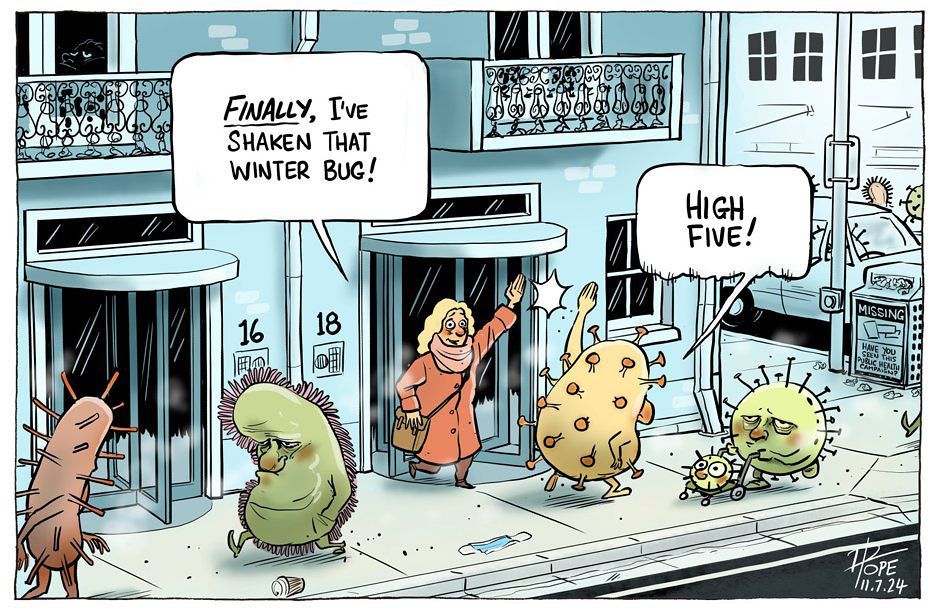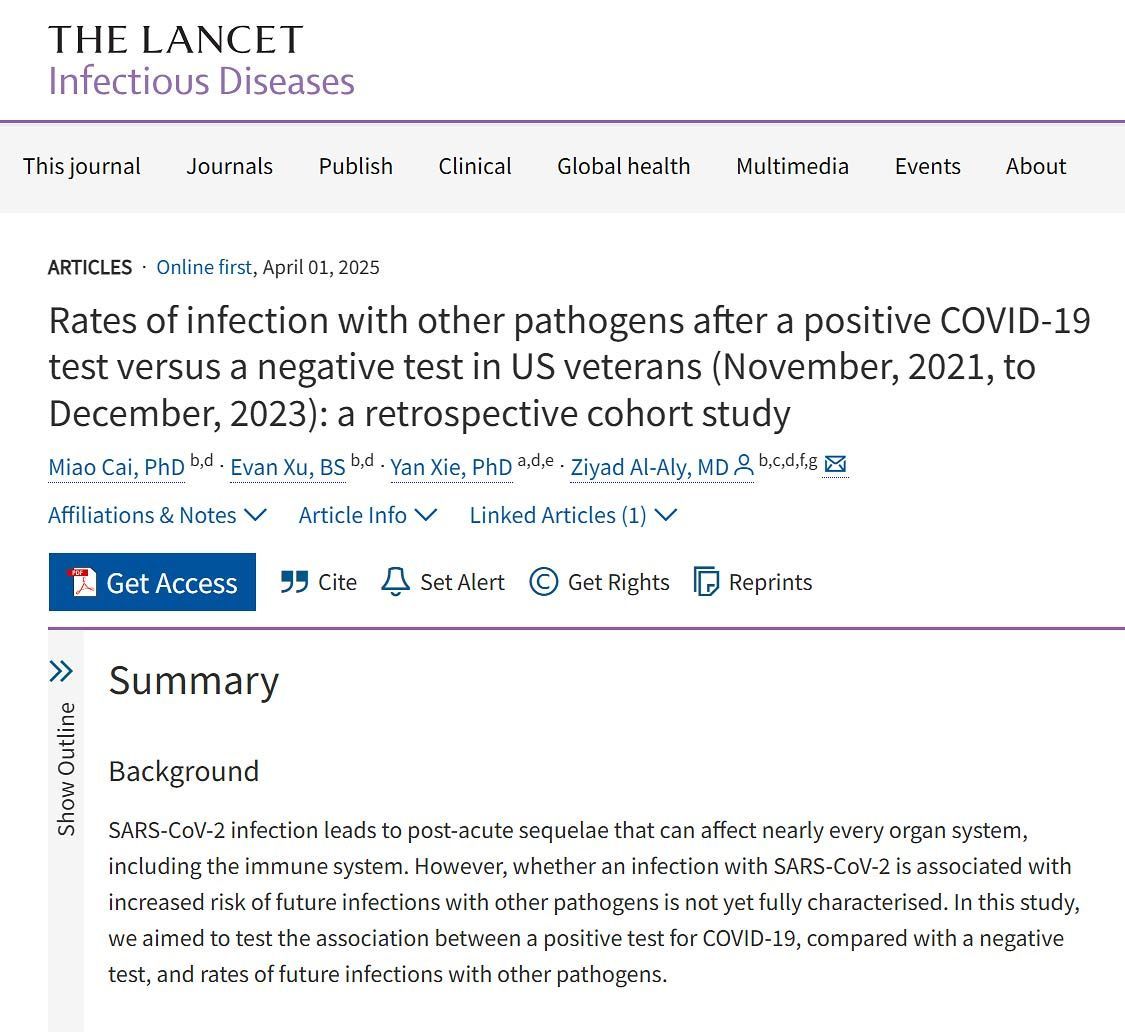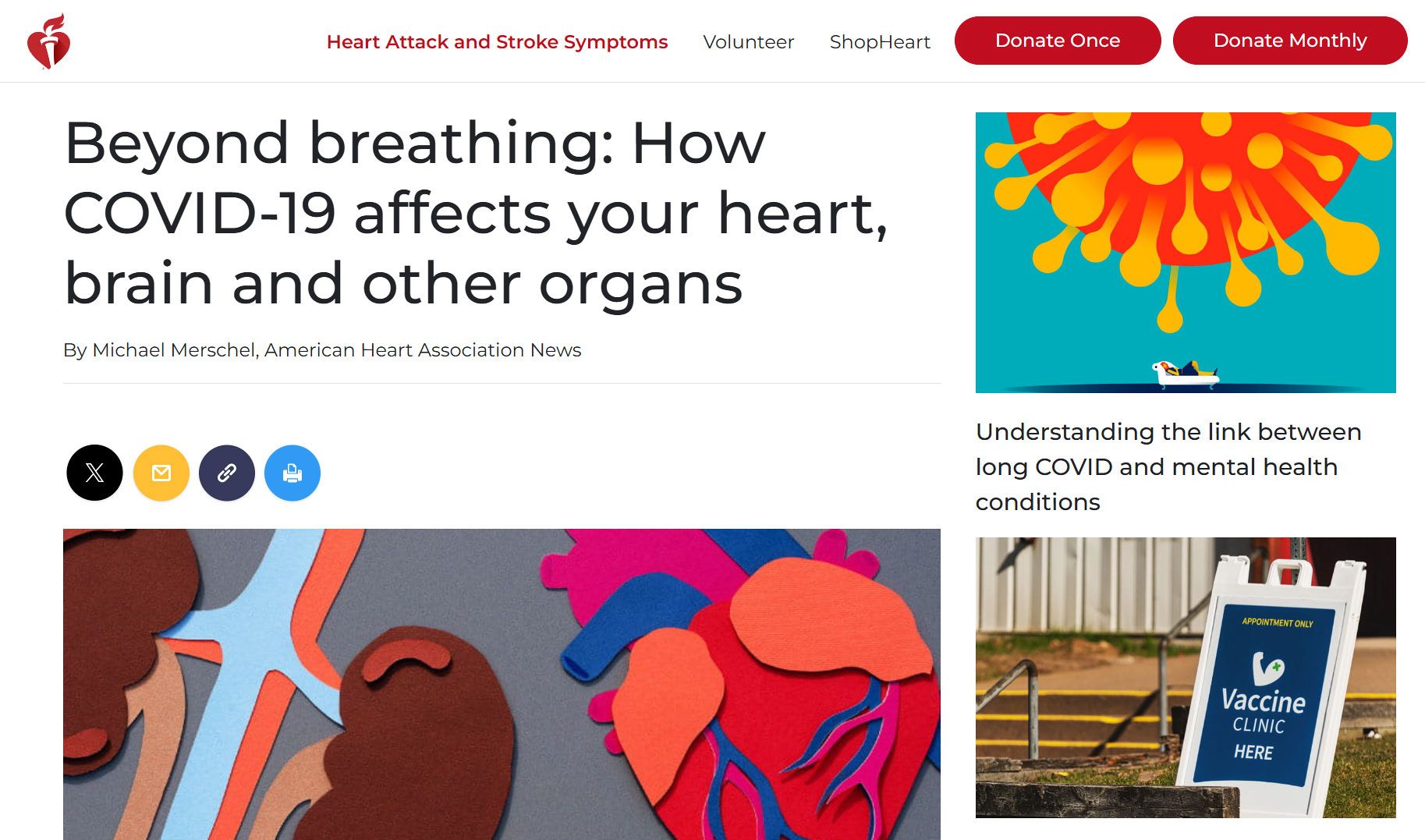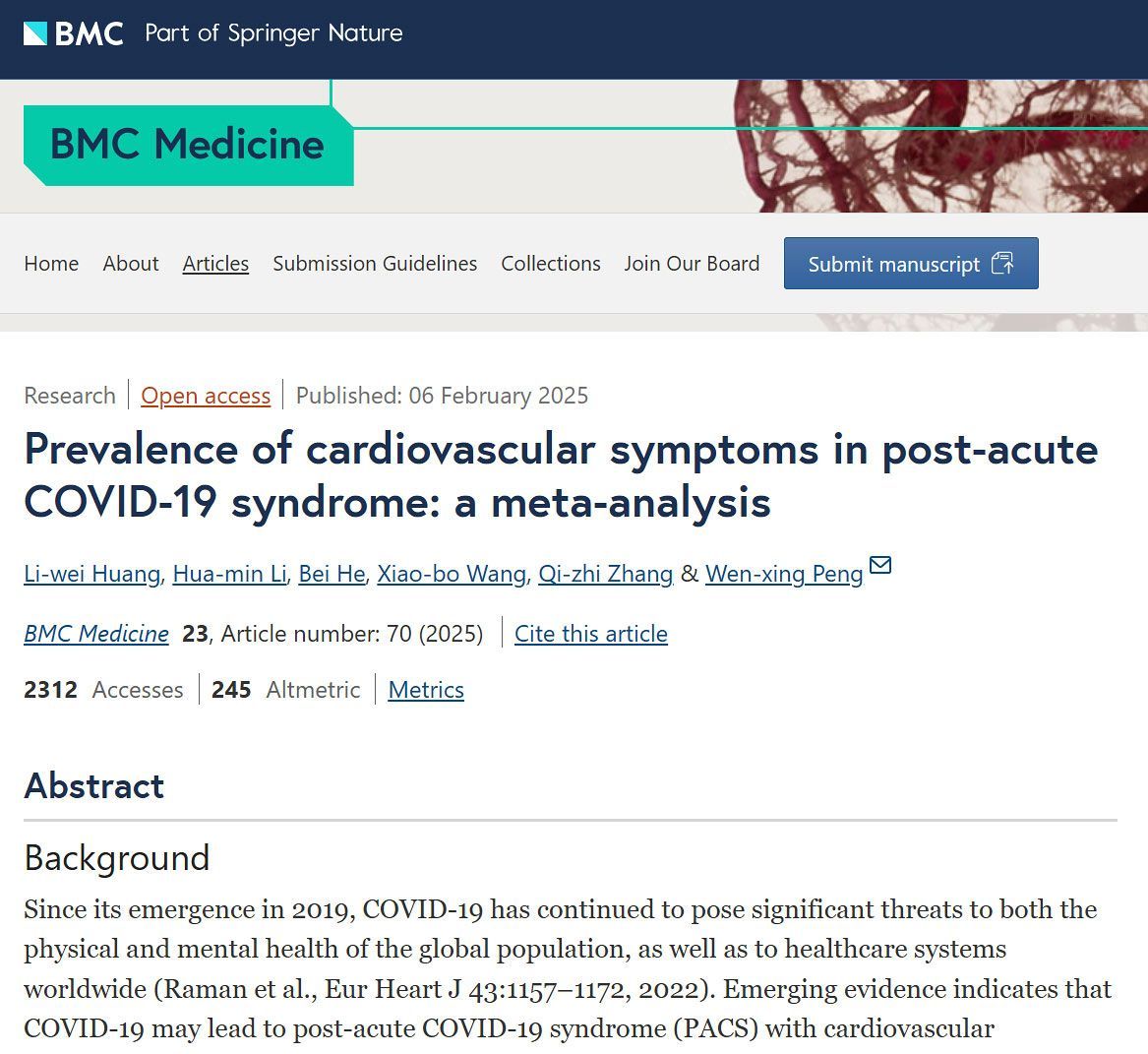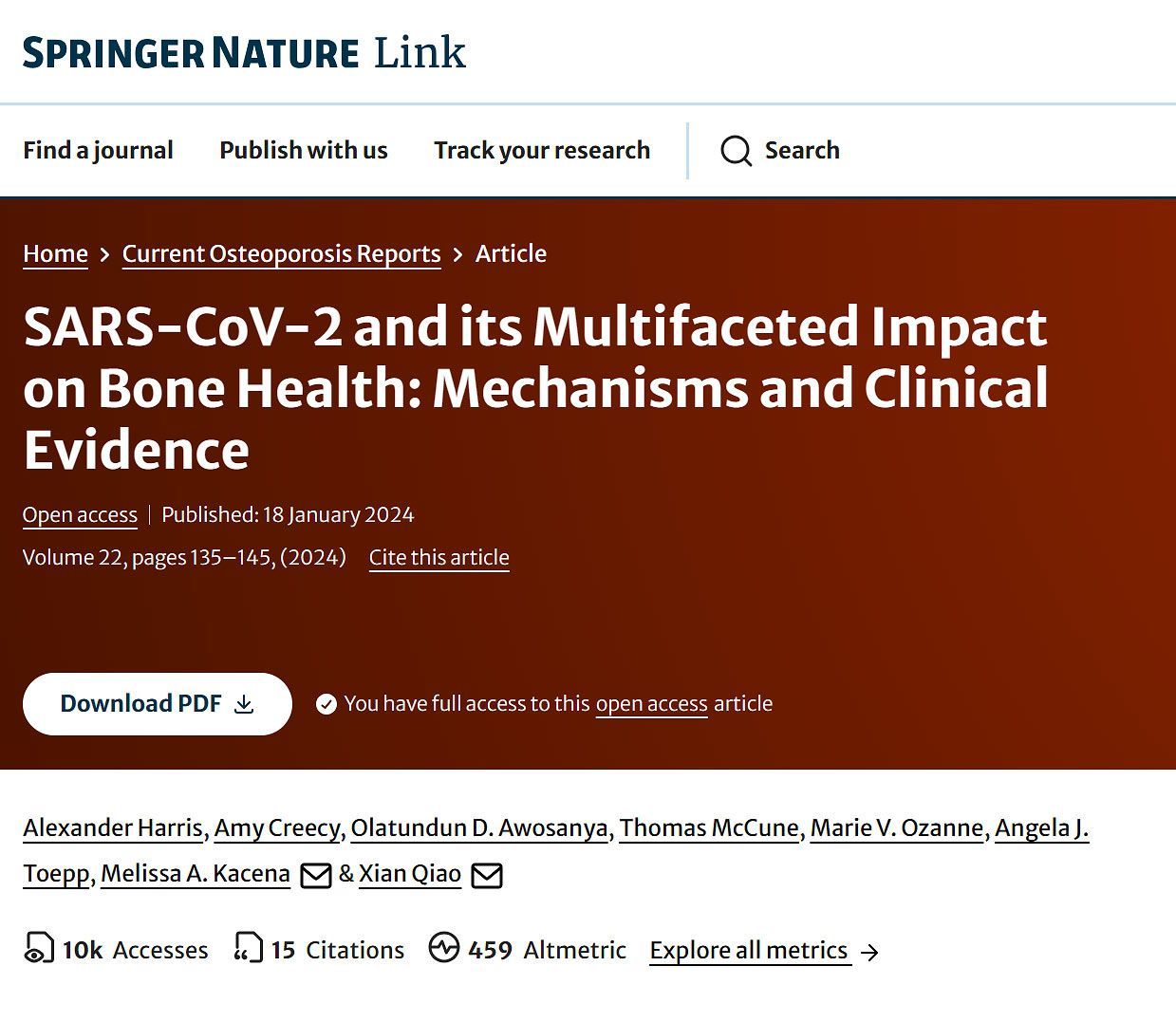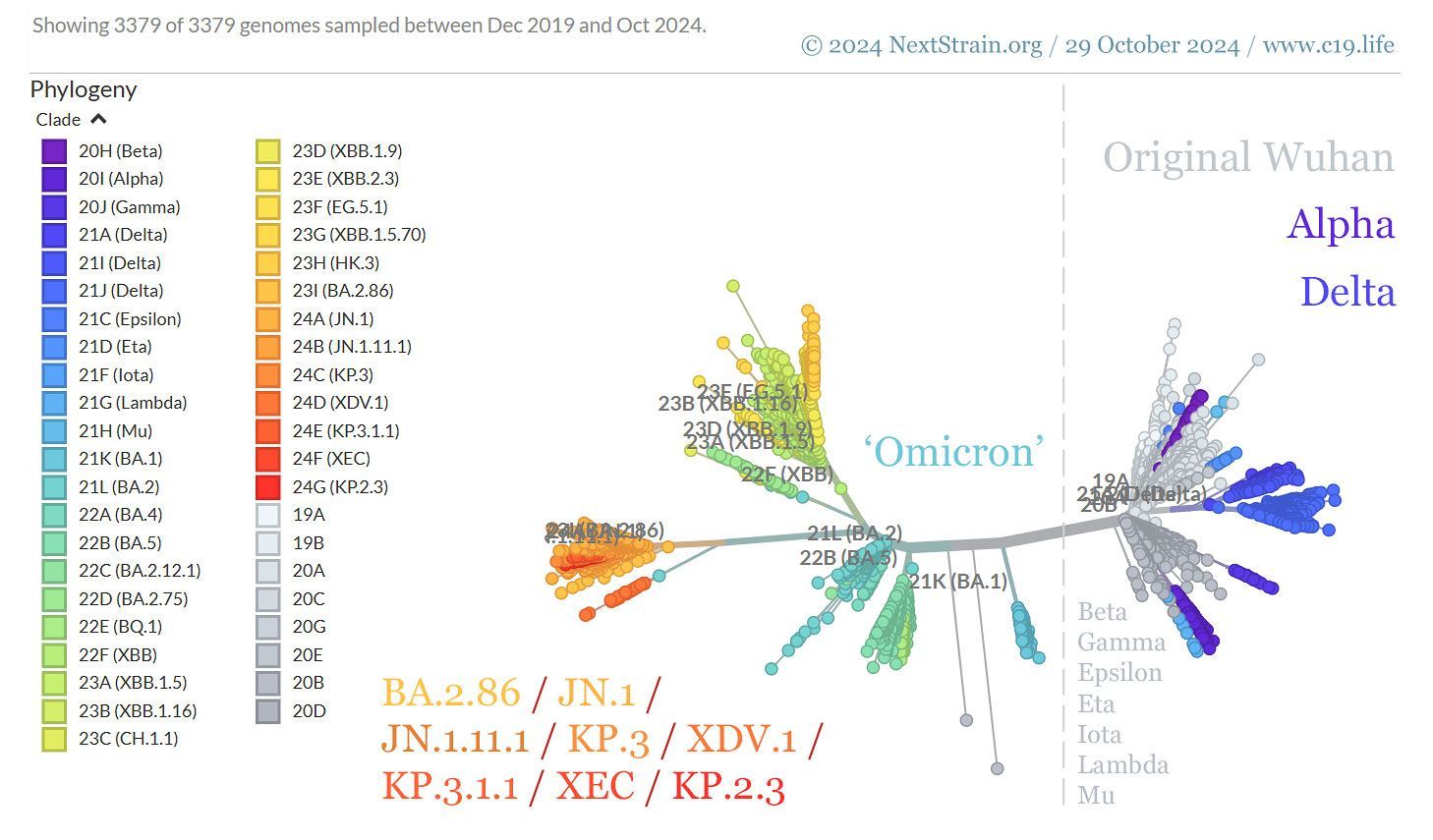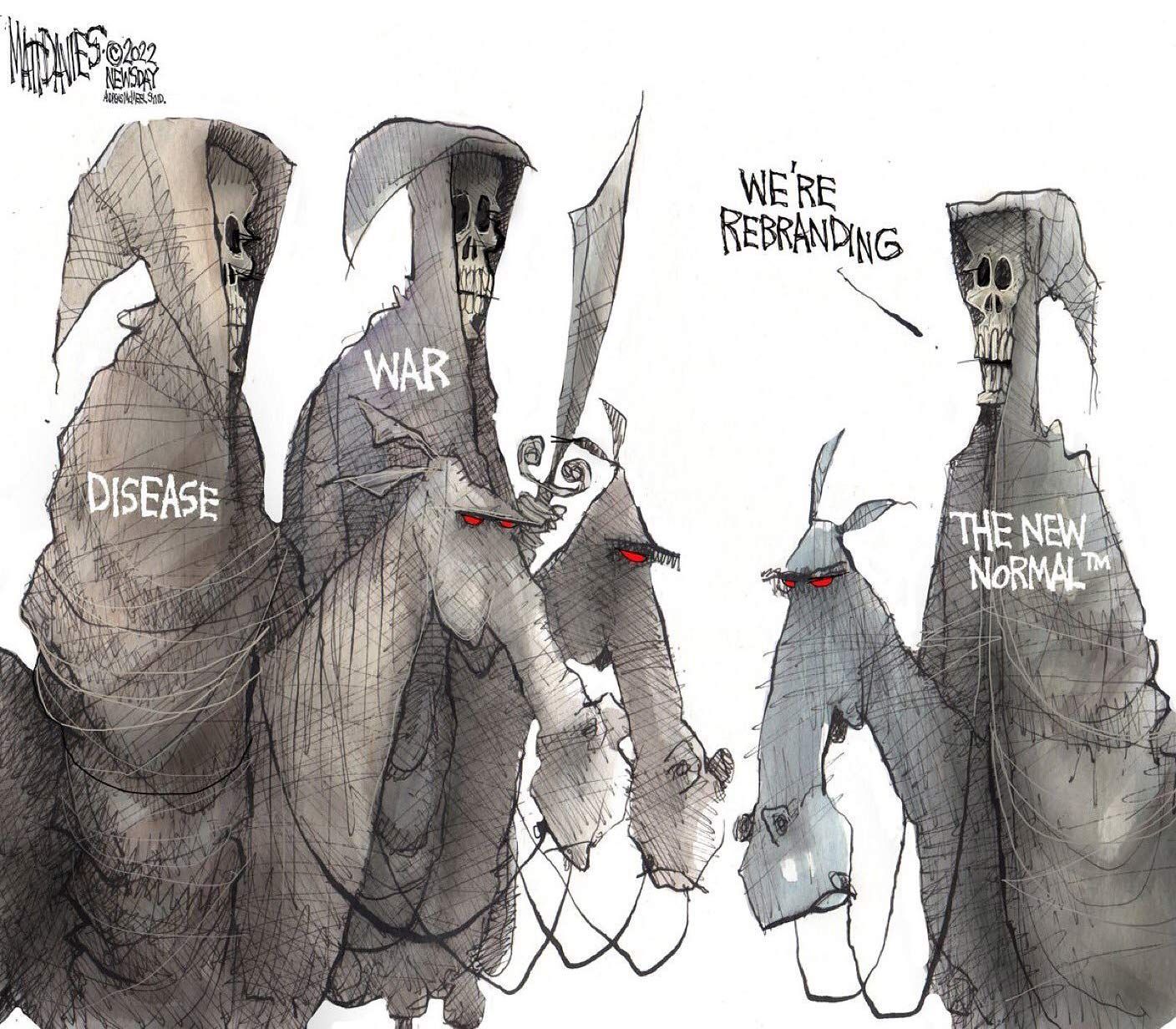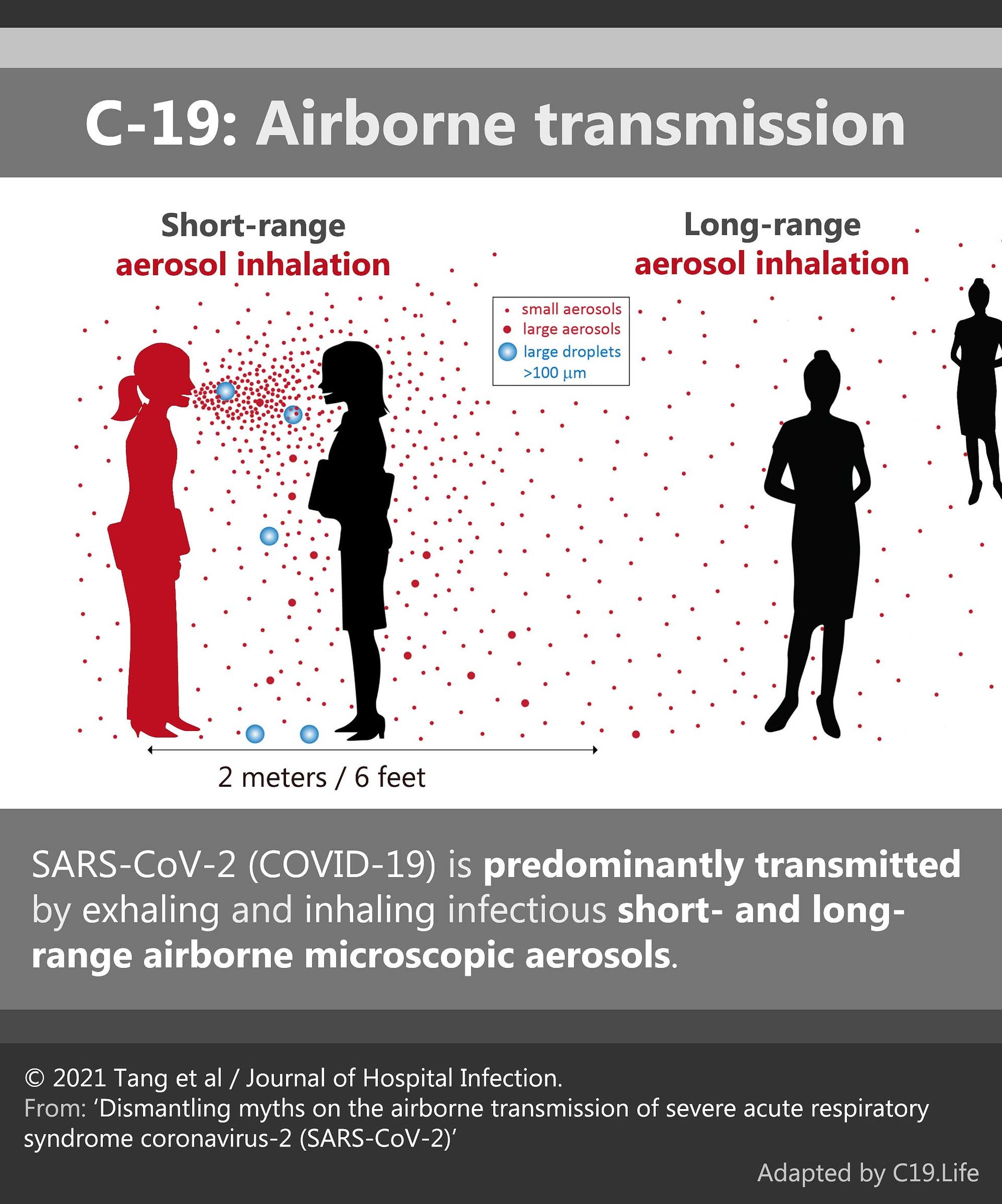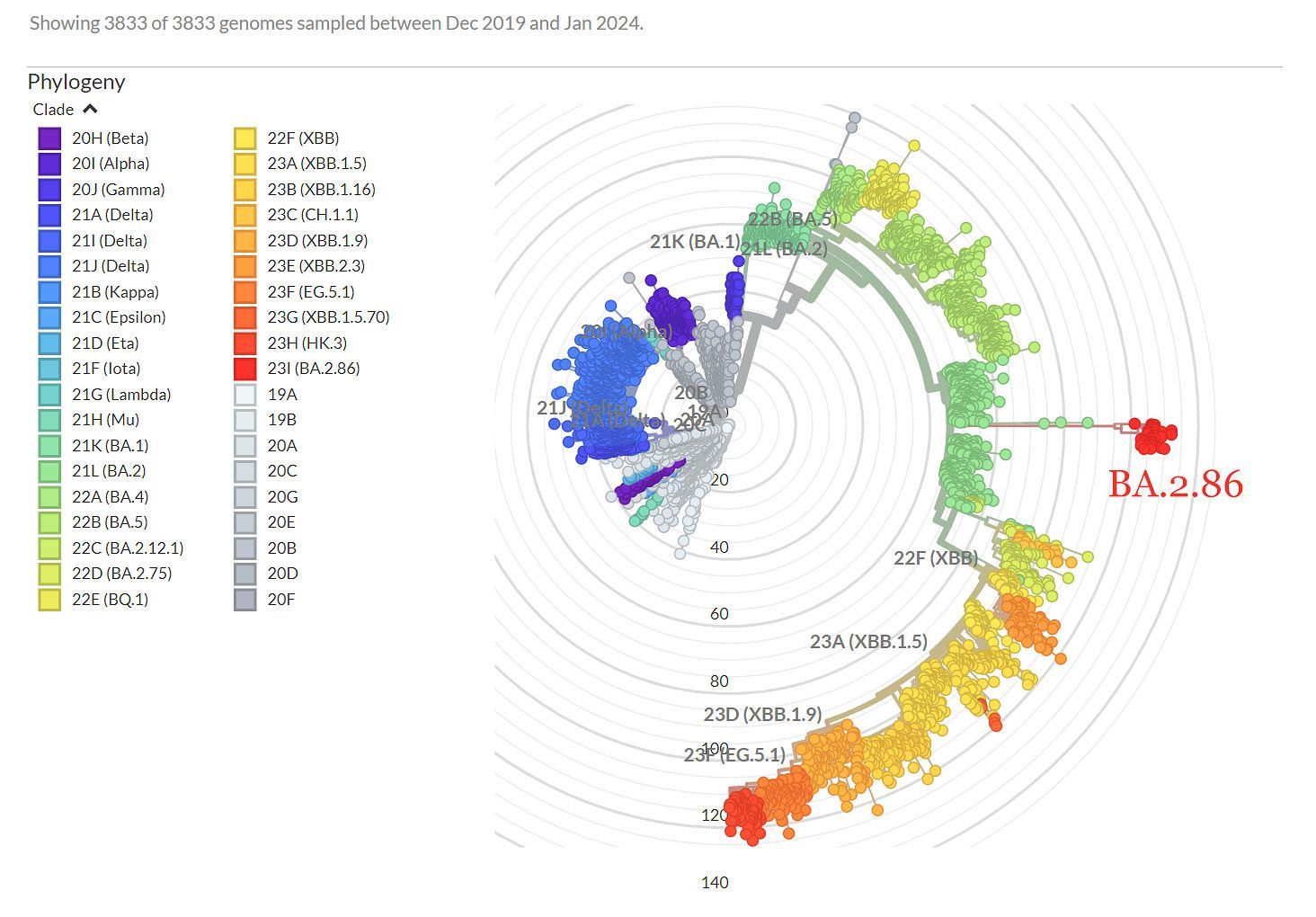➲ Home ➲ C-19 Archives
Beyond Long COVID – How reinfections could be causing silent long-term organ damage
CBC Radio-Canada interview with long COVID [PASC] researcher David Putrino from the Icahn School of Medicine at Mount Sinai in New York.
📖 (20 Mar 2025 ~ Radio-Canada / Canadian Broadcasting Corporation) ‘Beyond long COVID – how reinfections could be causing silent long-term organ damage’.
© 2025 Radio-Canada / Canadian Broadcasting Corporation (CBC).
❂
❦ Radio interview ~ ‘Beyond long COVID – how reinfections could be causing silent long-term organ damage’
David Putrino interviewed by Bob McDonald.
Produced by Sonya Buyting for the Canadian Broadcasting Corporation (20 Mar 2025)
❦ ‘COVID may no longer be considered an official global emergency, but mounting scientific evidence suggests every COVID infection a person gets increases their risk of developing long-term health issues.
The long-term effects can show up as long COVID, with symptoms such as shortness of breath, digestive problems, fast or irregular heartbeats, extreme fatigue and ‘brain fog’, or as silently-accumulating cellular or organ damage.
“There is no such thing as a COVID infection without consequence,” says long COVID researcher, David Putrino, from the Icahn School of Medicine at Mount Sinai in New York.
Putrino has been studying the lingering effects of COVID since early in the pandemic five years ago.
“There is more and more literature emerging to show that, beyond long COVID, there are also effects that SARS-CoV-2 infections are having on the bodies of the general public that manifest in a way that might be viewed as silent. So what I mean by that is no-one’s going to their doctor and saying “I feel different” or “I feel as though my functional status has changed,” but what’s happening is, silently in the background, things are changing.
A good example of that is the effect that SARS-CoV-2 infections can have on cognition.
“There was a recent 2024 study showing us that individuals who survive an acute COVID-19 infection – these are not individuals who are getting diagnosed with long COVID – on average will lose somewhere in the neighbourhood of two to six IQ points per infection.”
So there is a cumulative effect that can be occurring with each infection.
Early in the pandemic, we actually published a paper where we showed that, even in animal models — when we infected mice with a very, very mild case of SARS-CoV-2 infection — which only caused lung inflammation, we still saw these inflammatory chemicals called chemokines emerging from the infected lungs and starting to attack central nervous system structures such as the spinal cord and the brain.
“This is a virus that, once it enters the body, is very capable of entering the bloodstream, creating immune responses that travel all over the body.”
In all of the peer-reviewed literature that has emerged on long COVID, we’ve seen that it is a very diffuse clinical syndrome where every single organ system can be affected. And at last count, over 200 symptoms have been catalogued as potential symptoms of long COVID.
When we actually dig into the science of why long COVID is causing the symptoms that it’s causing, we see that there are problems such as what we call ‘viral persistence’.
Meaning the SARS-CoV-2 virus is not being effectively cleared by the body and it’s sticking around.
It’s hiding out in different areas of the body in what we typically call ‘immune privileged sites’, which mean that immune cells don’t actually go there and can’t ‘seek out’ and destroy the virus. That can happen in a number of different locations in the body, which leads to a wide array of symptoms.
We also see that the virus can cause prolonged chronic inflammation that can be whole-body wide. So it can affect every single organ and so often, many of the symptoms that people are experiencing are more related to which organ is most susceptible to them given their past medical history.
We see things that are quite insidious. People who were pre-diabetic are suddenly diabetic. People who were having a few issues with their gallbladder suddenly can’t digest fat anymore.
In 2021, two colleagues of mine published a really wonderful paper that I think is very prescient and it spoke about why SARS-CoV-2 presents such an increased threat to cause persistent symptoms. The reality of that situation is that this virus has a lot of very unique qualities that specifically cause immune damage to the host.
So it’s not just about infecting you and causing respiratory illness and fever, and all of the things that we usually get with the viral infection. This virus also specifically causes your immune system to become weaker.
“This virus also specifically causes your immune system to become weaker.”
It disrupts what we call ‘interferon signalling’, which is part of the immune system that helps you to fight off infections or latent infections, such as Epstein Barr virus.
Typically our immune system can keep these things suppressed, but when SARS-CoV-2 enters the picture, it starts to cause altered interferon signalling. It causes immune damage and dysregulation.
And suddenly, not only does your body have trouble clearing the SARS-CoV-2 virus itself, but it also starts to have trouble keeping some of these other viruses that have been latent from reactivating and causing problems.
In addition to SARS-CoV-2’s ability to dysregulate the immune system and suppress the immune system, the spike protein itself is very damaging to blood vessel structures as well as red blood cells and platelets themselves.
“And so between those two features, the ability to dysregulate the immune system and the ability to cause systemic damage throughout the bloodstream, you have a very dangerous novel virus on your hands.”
In 2023, we published a paper in Nature where we showed that individuals with long COVID were much more likely than a cohort of healthy controls to express signs of what we call ‘T-cell exhaustion’. Meaning that their T cells, which are parts of the immune system that are typically used to fight off infections, are starting to present as exhausted – that there has been a persistent stimulation of these T cells for long enough that their responses over time are starting to weaken.
As a result, in this study we saw immune dysregulation, we saw hormonal dysregulation, we saw reactivation of herpes viruses that were previously thought to be latent.
And as we have made leaps and bounds in our ability to understand the role of these persistent pathogens, these things that we used to think, “Everybody’s got Epstein-Barr virus, but don’t worry, it sort of just lays dormant in your body and it doesn’t cause any trouble.”
What we’re learning is that it very much can cause trouble. If it’s mixed with another pathogen [such as SARS-CoV-2], and that pathogen causes the reactivation, then people can get very, very sick.
For the longest time in the field of immunology, there was the sort of adage that your immune system needs to be tested every now and again to stay strong. That’s an old-fashioned idea.
The more new-fashioned and evidence-based idea is that, although your immune system can take on [a COVID] infection, you want to avoid testing it as much as possible because your body is sustaining damage with each infection that it survives.”
❂
📖 (20 Mar 2025 ~ Canadian Broadcasting Corporation) ‘Beyond Long COVID – How reinfections could be causing silent long-term organ damage ➤’.
© 2025 Radio-Canada / Canadian Broadcasting Corporation (CBC).
“If y’all are busy weakening your immune systems with one virus, let me assure you that there are packs of other pathogens out there waiting to chew on the leftovers.”
© 2023 Dr. Noor Bari (Emergency Medicine)
❂
More... Reinfection & Immunity
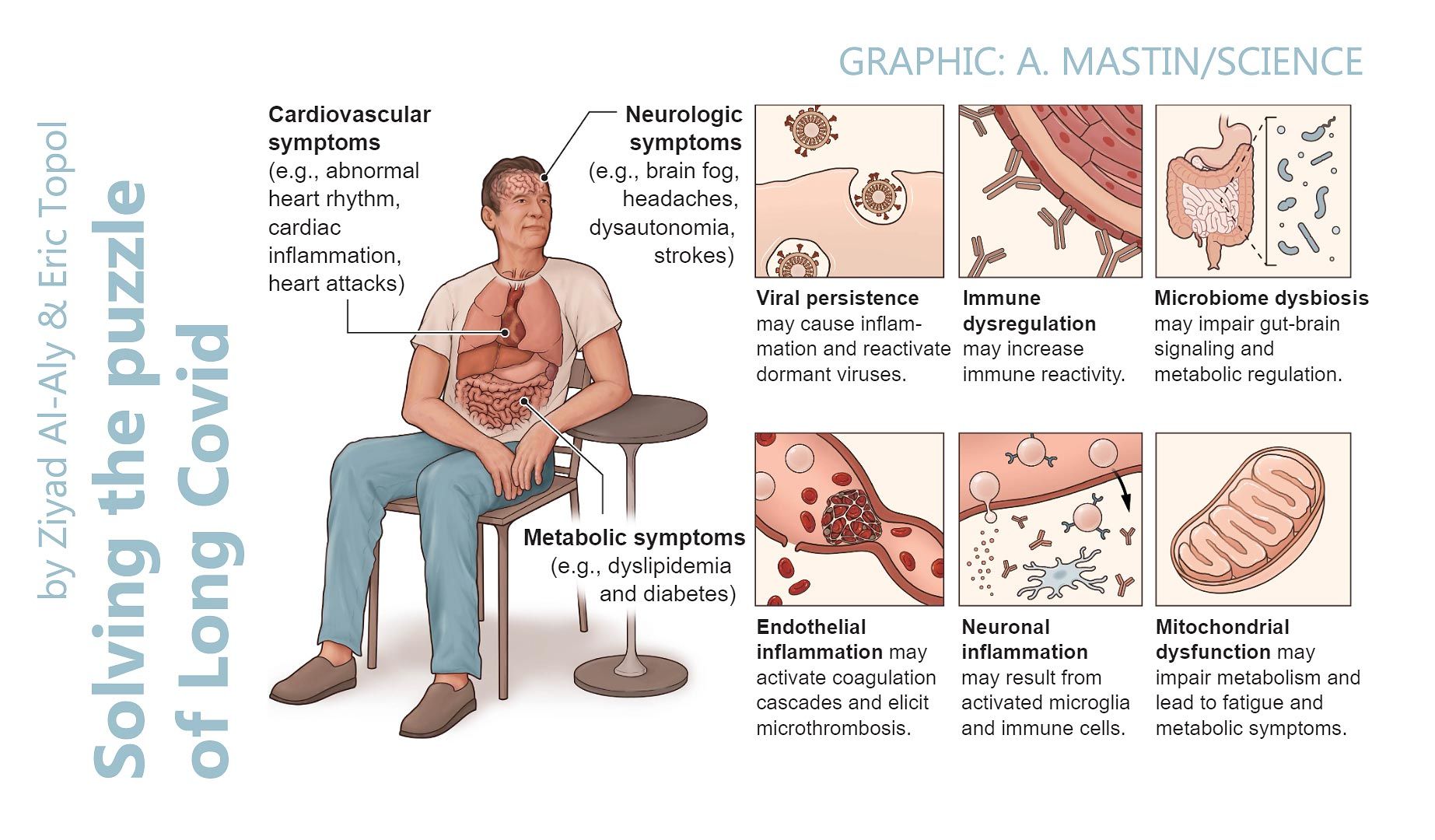





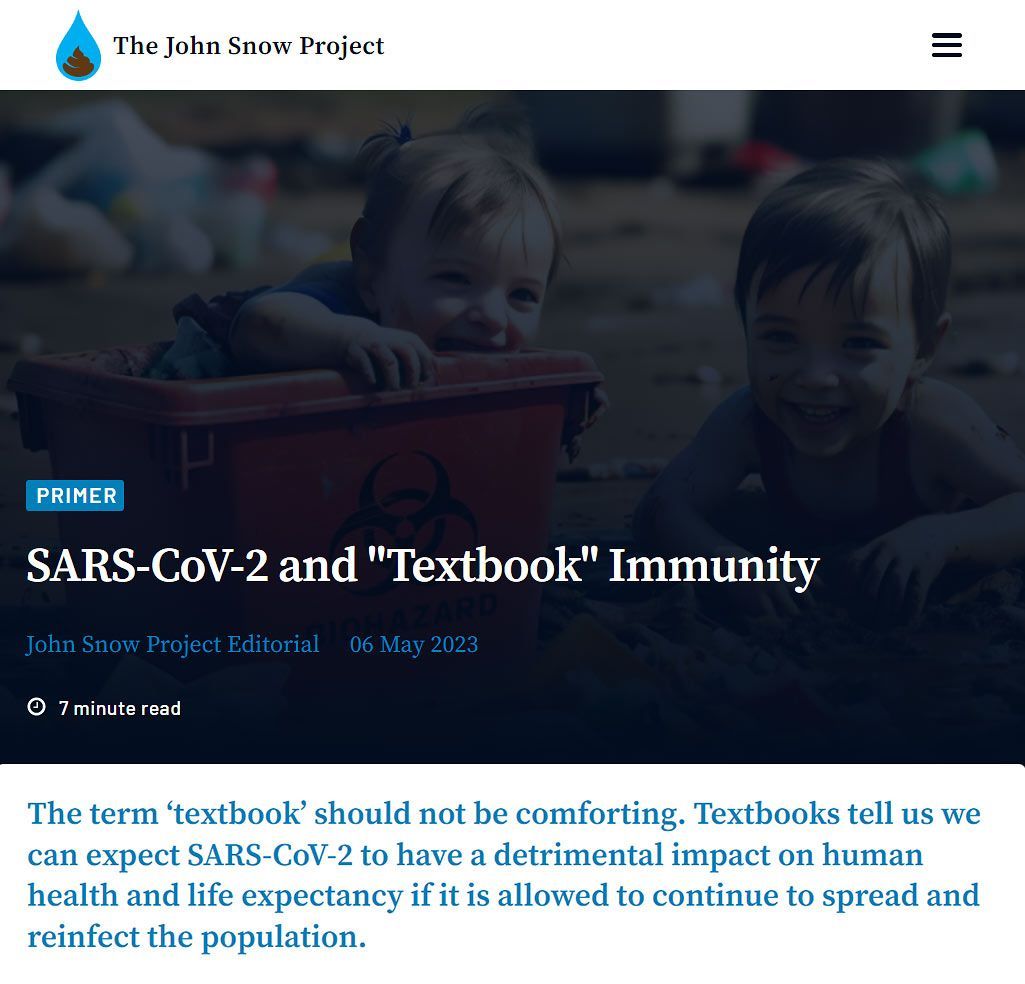


















More... PASC (‘Long Covid’)
C-19: Archives
Useful search tags:
air filtration / babies & children / body / brain / C19.Life / cancer / comment / dementia / economy / elders / excess deaths / exercise / flu / heart / history / hospitals / immunity / influenza / law / Lisa Iannattone / long covid / lungs / mitochondria / muscles / musculoskeletal / NHS / Noor Bari / nosocomial / PEM / parkinson’s / propaganda / reinfections / reproduction and pregnancy / resources / respirators / respiratory / risk / SARS(-CoV-1) / schools / solutions / transmission / universities / UVC / vaccines / variants / WHO / young adults / zoonosis





